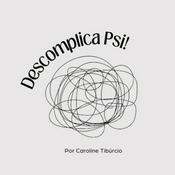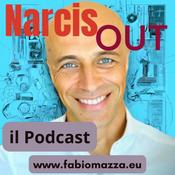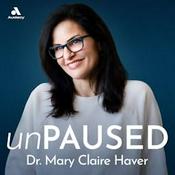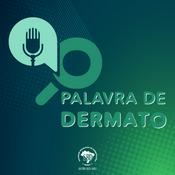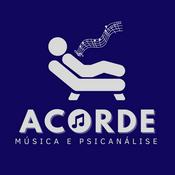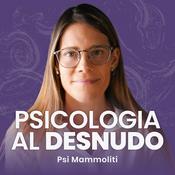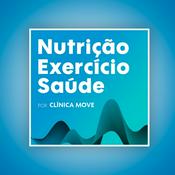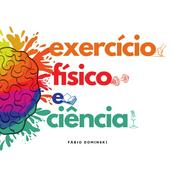792 episódios
February 17, 2026: Women's Cardiovascular Health in Focus: From Inclusion to Redesign | JACC This Week
17/2/2026 | 21minIn this episode of JACC This Week, Dr. Carolyn Lam and Dr. Harlan Krumholz explore the JACC Women's Cardiovascular Health Issue—an edition dedicated to advancing science, care, and professional culture for women in cardiology.
The discussion spans original research and viewpoints addressing menopause and cardio-oncology risk, sex differences in dilated cardiomyopathy, device trials, rehabilitation after heart failure, global disparities, and the intersection of sex, race, and socioeconomic status in cardiovascular outcomes.
Beyond inclusion, this episode highlights a deeper challenge: whether our systems of evidence generation, clinical care, and professional training are designed to serve women fully and routinely. The conversation also features a powerful viewpoint by Sarah Krumholz, Dueling Pursuits: Balancing Motherhood and Medicine, catalyzing a broader dialogue about leadership gaps, culture, and the future of cardiology.
This episode sets the stage for a special bonus continuation focused on redesigning the profession for the next generation.JACC This Week Bonus Episode – Women's Cardiovascular Health: From Inclusion to Redesign
17/2/2026 | 14minThis bonus episode continues the conversation from the JACC Women's Cardiovascular Health Issue, moving from science to systems. In this extended discussion, Drs. Carolyn Lam and Harlan Krumholz are joined by Sarah Krumholz to reflect on how the culture and structure of cardiology shape the experiences of women in training and practice.February 10, 2026: Amyloidosis in Focus: Diagnosis Delays, Early Treatment, and What Clinicians Must Know | JACC This Week
10/2/2026 | 14minIn this episode of JACC This Week, Dr. Harlan M. Krumholz and Dr. Carolyn S.P. Lam discuss a dedicated issue of JACC focused on cardiac amyloidosis—one of the fastest-evolving areas in cardiovascular medicine.
They explore new evidence highlighting significant delays in diagnosing ATTR cardiomyopathy, the early divergence of mortality benefit with timely treatment, and why time to diagnosis is no longer a neutral factor. The conversation also examines secondary analyses from major clinical trials, practical guidance for amyloidosis evaluation and management, and Dr. Krumholz's Editor's Page on "computable diagnosis" as a moral imperative.
This episode places emerging science in clinical context, emphasizing urgency, equity, and how clinicians should be thinking differently about diagnosis, staging, and access to therapy in amyloid heart disease.
Read Full issue here: https://www.jacc.org/toc/jacc/87/5
Keywords: cardiac amyloidosis, amyloid heart disease, ATTR cardiomyopathy, computable diagnosisFebruary 3, 2026: A New Season of JACC This Week: Valve Disease, Editorial Vision, and Engaging the Global Cardiology Community | JACC This Week
03/2/2026 | 17minWelcome to the new season of JACC This Week! In this episode, Editor-in-Chief Dr. Harlan Krumholz is joined by co-host Dr. Carolyn Lam to kick off a refreshed, more conversational era of the podcast. Together, they reflect on the evolution of the show, approach to thematic curation, and introduce the February 3 issue of JACC, curated around valve heart disease.
The discussion explores JACC's approach to thematic issues, the importance of timely publication, and how emerging evidence is shifting valvular heart disease management toward lifetime decision-making and patient-centered outcomes. Highlights include insights into aortic stenosis and regurgitation, tricuspid regurgitation, global perspectives on valve care, and what clinicians should be watching as transcatheter therapies continue to evolve.
Dr. Krumholz also shares the thinking behind his Editor's Page on scientific writing—specifically, how a strong introduction earns the reader's trust—offering practical guidance for researchers at all stages. The episode sets the tone for a new season focused on rigor, relevance, global inclusion, and meaningful dialogue with the cardiovascular community.December 2, 2025: Global CVD 1990–2023: Trends, Risks, and the Road Ahead | JACC This Week
24/11/2025 | 11minIn the December 2, 2025 episode of JACC This Week, Editor-in-Chief Harlan M. Krumholz, MD, SM, introduces the Spotlight Issue, anchored by the manuscript "Global, Regional, and National Burden of Cardiovascular Disease and Risk Factors in 204 Countries and Territories, 1990–2023." Listen here as he reviews the issue and gives listeners perspective on the issue as a whole, which contains 19 viewpoints providing perspectives from experts around the world, plus his editor's page, aligned with a talk given at the UN with JACC Editor Emeritus Valentin Fuster, MD, and author Gregory A. Roth, MD. Other perspectives include: CVD in Sub-Saharan Africa; access to essential medicines and technologies; confronting inequities in pediatric cardiac care; and perspectives from Japan, Canada, the Middle East & North Africa, South America, Pakistan, and many others. Listen to the podcast and then check out the full issue online here: https://www.jacc.org/toc/jacc/86/22.
Mais podcasts de Saúde e fitness
Podcasts em tendência em Saúde e fitness
Sobre JACC This Week
A weekly co-hosted podcast featuring JACC Editor-in-Chief Harlan M. Krumholz, MD, SM, FACC and JACC Senior Consulting Editor Carolyn S.P. Lam, MBBS, PhD, giving readers context on our weekly issues. Listen in as they break down the latest trends and share practical tips that are changing the way heart care works globally.
Site de podcastOuça JACC This Week, On Purpose with Jay Shetty e muitos outros podcasts de todo o mundo com o aplicativo o radio.net
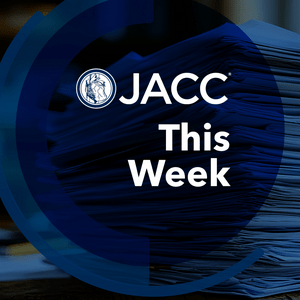
Obtenha o aplicativo gratuito radio.net
- Guardar rádios e podcasts favoritos
- Transmissão via Wi-Fi ou Bluetooth
- Carplay & Android Audo compatìvel
- E ainda mais funções
Obtenha o aplicativo gratuito radio.net
- Guardar rádios e podcasts favoritos
- Transmissão via Wi-Fi ou Bluetooth
- Carplay & Android Audo compatìvel
- E ainda mais funções


JACC This Week
Leia o código,
baixe o aplicativo,
ouça.
baixe o aplicativo,
ouça.













